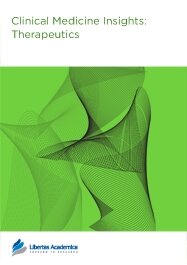

Publication Date: 07 Sep 2010
Type: Review
Journal: Clinical Medicine Insights: Therapeutics
doi: 10.4137/CMT.S5566

Background: Rituximab (RTX) is a biological agent used for the treatment of refractory rheumatoid arthritis (RA). The present systematic review and meta-analysis update the safety and efficacy of RTX for the treatment of RA in data published since 2006.
Methods: We searched PubMed from January 2000 to March 2010, and recent ACR Annual meeting abstracts for randomized (RCT) and non-randomized, controlled clinical trials (CCT) investigating the effects of RTX in RA. Included studies were at least six months, included participants who were ≥16 years of age meeting ACR revised criteria for RA, and compared RTX in combination with any DMARD or RTX alone versus placebo or other DMARDs or any biologic. Studies were excluded if they included patients previously exposed to RTX. Two reviewers independently extracted the data, and disagreement was resolved by discussion and consensus. The primary outcome was the Disease Activity Score (DAS28). The secondary outcome was American College of Rheumatology (ACR50) response. The efficacy results were combined in a meta-analysis. The primary endpoint was analyzed as a continuous variable using a random-effects analysis model to account for the fact that intervention effects were not uniform across all the studies. The secondary endpoint was analyzed as an odds ratio using the Mantel-Haenszel estimator under a random effects model to account for heterogenity in intervention effects across the studies. Descriptive statistics were used to compare adverse event (AE) rates and included both randomized and observational trials.
Results: For the meta-analysis of efficacy, we initially examined 45 studies, devolving to 6 studies after applying inclusion/exclusion criteria. 5 were RCTs and 1 was a controlled clinical trial. Improvements in DAS28 and ACR50 statistically favored RTX (Figure 1). For the safety evaluation, 22 studies (5 RCTs and 17 observational studies) were examined. Infusion-related reactions were higher in the RTX group (mean: 28%) vs. placebo (18%). Overall infection incidence was similar for both groups (RTX: 39 vs. placebo: 40%).
Conclusions: Our updated review supports RTX as a safe and efficacious therapy for treatment-naïve and methotrexate and/or TNF-alpha refractory patients with RA. AE’s revealed no more frequent infections than control. Future trials need to assess the longer-term efficacy and safety of RTX for RA, as well as the optimal time of re-administration of this agent.
PDF (648.22 KB PDF FORMAT)
RIS citation (ENDNOTE, REFERENCE MANAGER, PROCITE, REFWORKS)
BibTex citation (BIBDESK, LATEX)
It is my pleasure to confirm that we had a very pleasant experience by publishing our article in Clinical Medicine Insights: Therapeutics. The review process was highly efficient and the reviewers' comments useful and constructive. I am sure that this is the kind of publication needed by the scientific community. I am looking forward future collaborations.

All authors are surveyed after their articles are published. Authors are asked to rate their experience in a variety of areas, and their responses help us to monitor our performance. Presented here are their responses in some key areas. No 'poor' or 'very poor' responses were received; these are represented in the 'other' category.See Our Results
Copyright © 2013 Libertas Academica Ltd (except open access articles and accompanying metadata and supplementary files.)
FacebookGoogle+Twitter
PinterestTumblrYouTube